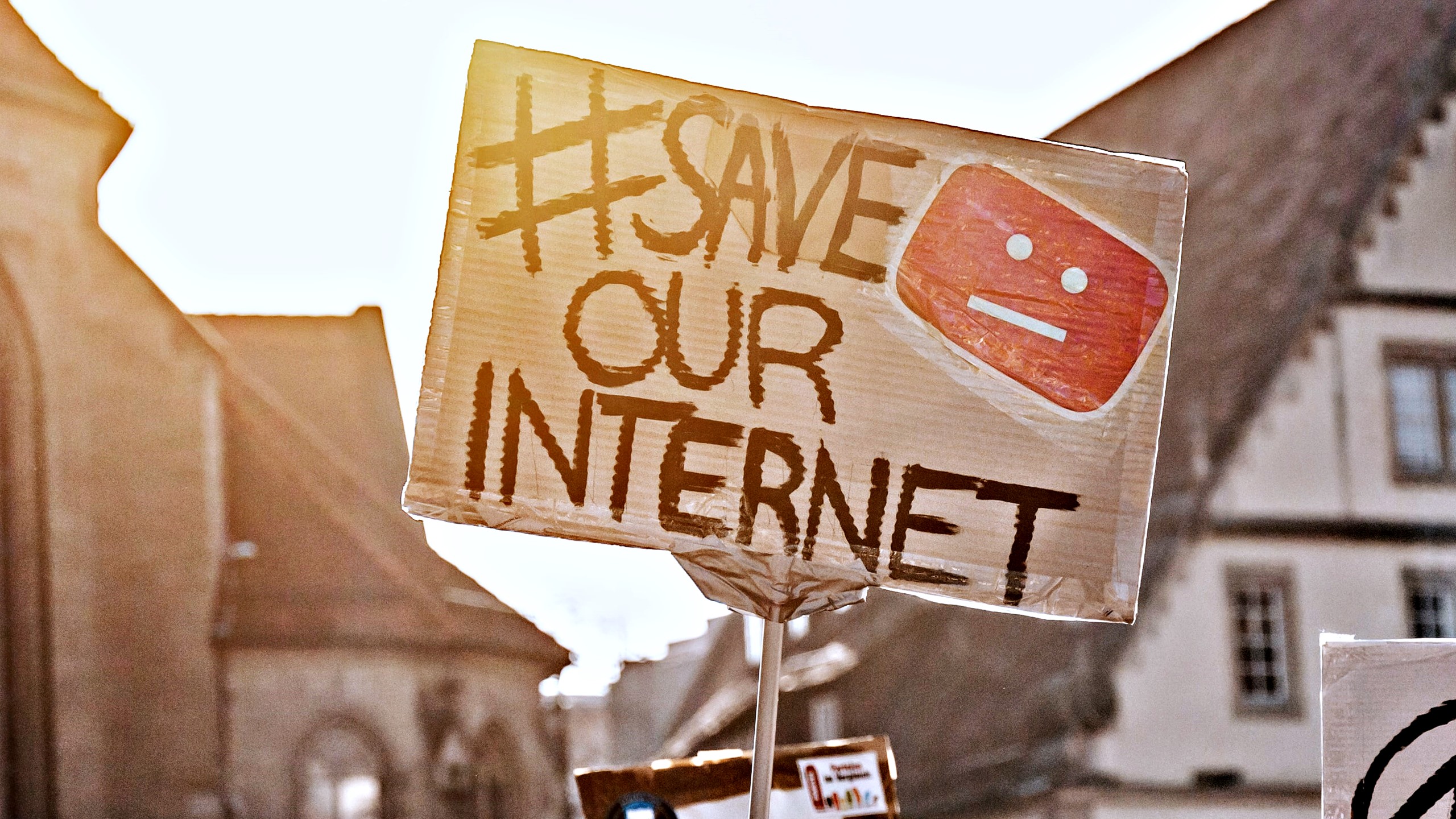EU Network Usage Fees: Is Anyone in Favour of Taxing Internet Traffic, Big Telcos Aside?

European telecom operators want to charge the same internet traffic twice. Telcos are already paid by their customers for internet access, but now also want to get money whenever tech firms respond to consumers’ requests for data. In recent months, telecom incumbents have been aggressively lobbying the European Commission and national governments for the introduction of these so-called “fair share” payments.
The Commission will soon, if not later this week, publish a public consultation on the issue of network fees. However, contrary to what some would like you to believe, this is not a simple “Big Telcos vs Big Tech” debate about money. It’s about the future of the Internet.
A leaked draft of the consultation doesn’t bode well, with the Commission showing little interest in the concerns of non-industry stakeholders. The draft survey fails to recognise the consumer impact, even though they would ultimately end up paying for network fees, and Europe’s net neutrality protections are only mentioned once, in passing.
To fully understand what is at stake here, it is important to take into account the views of the internet ecosystem as a whole. Who is against network usage fees? And who, if anyone aside from big telcos, is in favour of taxing internet traffic?
Telco demands pose “risks for the internet ecosystem” according to regulators
The most authoritative institution on telecommunications matters in the EU, the Body of European Telecom Regulators (BEREC), recently concluded that it found “no evidence that such mechanism [for network fees] is justified given the current state of the market.” BEREC adds that it “would simply lead to large players exploiting the last-mile telecom bottleneck to increase monopoly profits.”
In other words, regulators do not see any market failure that needs to be addressed. On the contrary, network fees could create one by giving more power to telecom incumbents, who already have a termination monopoly.
Consumers: network fees “undermine open and free access to the Internet”
According to BEUC, the European Consumer Organisation, network fees threaten consumers in multiple ways. BEUC argues that a sending-party-network-pays (SPNP) model would “undermine the open and free access to the Internet as consumers know it today.” Moreover, it believes that these fees could distort “competition on the telecom market, negatively impacting the diversity of products, prices and performance.”
BEUC’s analysis is consistent with the situation in South Korea, where consumers now face “high costs and low quality of content services,” after a similar SPNP model was introduced. Consumer groups rightly fear that network fees can’t be implemented without violating the net neutrality principle, which in practice means that consumers would no longer be able to freely access the websites and online content that they wish.
Civil society warns that taxing traffic “conflicts with core net neutrality protections”
In June last year, 34 civil society organisations from 17 countries urged the European Commission “not to sacrifice the free and open internet to the short-sighted and self-interested demands of the telecom industry.”
Digital rights NGO Epicenter.works, one of the letter’s signatories, carefully analysed all telco arguments to conclude that not a single one stands up to scrutiny upon closer inspection. MEPs also warn that network fees would endanger net neutrality, sharing the fears of consumer groups and civil society.
Alternative telcos caution that fees “would seriously harm competition”
Alternative telecommunication companies are actually aligned with the rest of the internet ecosystem in criticising the proposal of ETNO, which lobbies on behalf of the biggest telcos.
Both the European association of mobile virtual network operators (MVNO Europe) and the EU Competitive Telecommunications Association (ECTA) have expressed grave concerns. They fear that network fees will disrupt the transit and peering markets, which already are highly competitive and should be preserved. The fair share payments demanded by big telcos “would seriously harm competition on telecom markets, harm MVNOs directly, and ultimately be detrimental to both consumers and business users.”
Furthermore, MVNOs warn that it’s likely that network fees would only “end up reinforcing telecom incumbents’ market position and could lead towards tighter oligopolies,” as also mentioned by BEREC. The French Association of Alternative Telecom Operators has voiced similar concerns, stressing that the introduction of network fees would be detrimental to the survival of small and medium-sized digital companies.
Internet Exchanges expect “new systemic weaknesses in critical infrastructure”
In its recent paper, the European Internet Exchange Association points out that – again referring to evidence from South Korea – network fees would be “detrimental to the correct functioning of the Internet connectivity and peering market and distort competition therein. Citizens’ experience in basic business operations, sharing data, accessing cloud services and developing research projects will be negatively impacted.”
Academics see network fees as a “terrible idea with no justification”
Last October, 29 leading academics and internet experts joined forces to urge the Commission to “abandon its plans to require content providers to pay telecommunication providers an infrastructure fee.” “The idea behind this proposal represents a fundamental misunderstanding of how the internet works” they said, underlining that network fees would harm – rather than promote – Europe’s digital agenda.
In a similar fashion, Professor Žiga Turk told EU lawmakers very clearly that “the Internet is not broken, and it does not need fixing”. These concerns have been echoed at Stanford Law School’s Center for Internet and Society, where Professor Barbara van Schewick highlights that ETNO’s proposal would not just affect a handful of “Big Tech” companies – which is what telcos have repeatedly claimed – but rather that “thousands of European businesses would likely be unintentionally roped in for using content delivery networks and cloud services offered by these companies.”
The European Centre for International Political Economy (ECIPE), a leading think tank, also warns that an internet traffic tax is unlikely to lead to EU telcos investing more in networks. “Europe’s telcos are funnelling industry cash into exorbitant dividend pay-outs and expansions in profitable markets overseas. […] ‘Sender pays’ would only lead to higher dividends and further share buybacks, whilst risking diminished connectivity.”
Media industry warns against “policies detrimental to investments in internet infrastructure”
The European Video on Demand Coalition, representing popular streaming platforms, makes clear that network fees are “an inadvisable policy as Europe aims to foster innovation and digitisation”. Along the same lines, the Association of Commercial Television (ACT) reminds the EU how “more money paid in network fees would mean less money to invest in content, which in turn means less content available or lower quality content. This is unacceptable,” they say.
Similar views are shared by national media players. German private media association VAUNET calls on EU policy makers to refrain from introducing network fees, as they would “endanger media pluralism and the existing high quality of media offerings in Europe, [and] create disadvantages for consumers.”
No one wants network fees, except for big telco CEOs
Big telecom operators aside, Europe’s internet ecosystem does not support the introduction of network usage fees. Even within ETNO, opinions seem to be divided. Recent CEO letters were only signed by half of the association’s membership, and some others even voiced their disagreement publicly.
And it’s not just tech firms that firmly oppose the idea, on the contrary. Regulators, consumer groups, civil society, alternative telcos, internet exchanges, academia, and media companies all agree: there is no market failure that needs to be addressed, and taxing internet traffic simply is not compatible with net neutrality.
The Commission’s upcoming public consultation should grant all stakeholders – both large and small – the opportunity to share their views on telcos’ demands for “fair share” payments.
Hopefully, all stakeholders will get a fair chance to participate in this debate on the future of Europe’s Internet and connectivity infrastructure. What we need are policies that foster the digitalisation of the European Union, instead of harming it.








